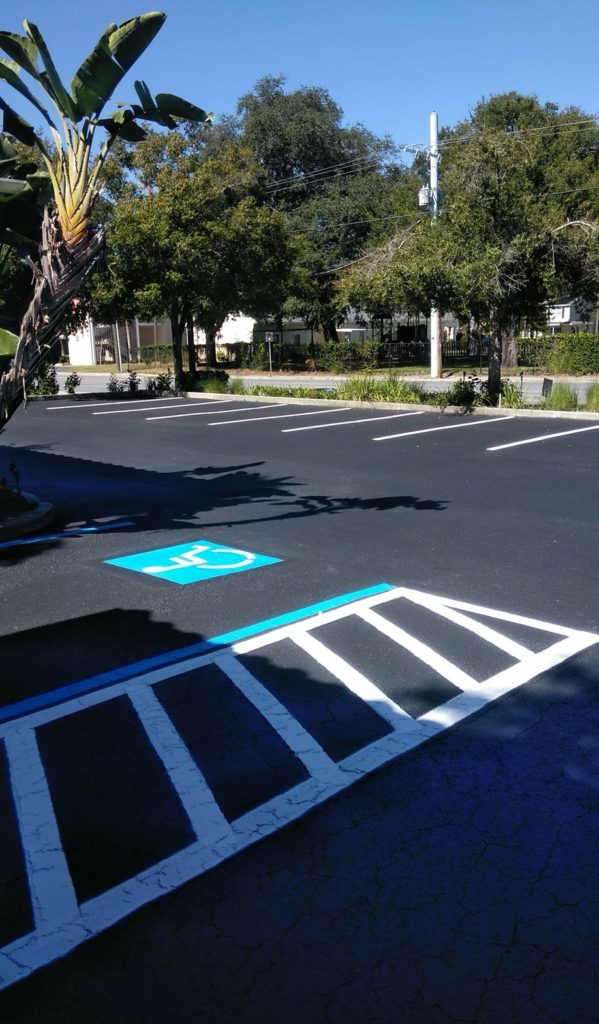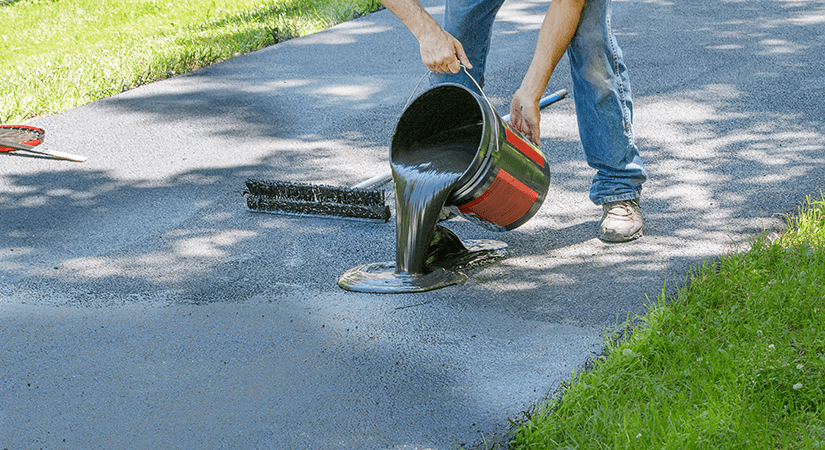Unlock the Secrets of Asphalt Sealing: Maximizing Hot Mix Asphalt Durability
Unlock the Secrets of Asphalt Sealing: Maximizing Hot Mix Asphalt Durability
Blog Article
Hot Mix Asphalt: A Sustainable Option for Sidewalk
Warm Mix Asphalt (HMA) has actually emerged as a leading lasting option for sidewalk services, providing a myriad of ecological benefits and cutting-edge modern technologies. As the demand for eco-friendly building and construction practices expands, checking out the nuances of HMA's sustainability can give important insights into the future of sidewalk services.
Ecological Benefits of Warm Mix Asphalt

Furthermore, Warm Mix Asphalt helps to alleviate urban heat island impacts. Its dark color soaks up sunshine, decreasing the quantity of warm mirrored back into the ambience contrasted to lighter-colored sidewalks. This can lower ambient temperatures in city areas, reducing the demand for cooling and ultimately minimizing power intake.
On top of that, Warm Mix Asphalt contributes to improved stormwater monitoring. Its permeable nature permits water to infiltrate the pavement and recharge groundwater products, reducing runoff and the risk of flooding. These environmental advantages make Warm Mix Asphalt a lasting selection for leading highways and roadways.
Energy Effectiveness in HMA Manufacturing
Is power performance a crucial consider the manufacturing of Hot Mix Asphalt (HMA)? Absolutely. Energy plays a significant role in the production of HMA, impacting both expense and environmental sustainability. One key aspect of power performance in HMA manufacturing is making use of warm mix asphalt (WMA) technologies (angled parking). WMA allows for the mixing and placement of asphalt at reduced temperature levels contrasted to standard hot mix asphalt, leading to minimized energy consumption during production. This process not only lowers gas usage but additionally decreases greenhouse gas exhausts, making it a much more ecologically friendly option.
Furthermore, improvements in plant modern technologies have actually caused more energy-efficient HMA production procedures. Modern plants are developed with features like recycled asphalt pavement (RAP) handling capabilities, reliable burner systems, and boosted insulation, all adding to energy financial savings. By enhancing power usage in HMA manufacturing, the industry can lower its carbon footprint while keeping top notch pavement materials. Energy performance is, therefore, an important consideration in making certain the sustainability of Warm Mix Asphalt production.
Recyclability of Warm Mix Asphalt
The recyclability of Hot Mix Asphalt (HMA) is an essential facet of its sustainability and long-term environmental effect. HMA is just one of the most recycled materials in the United States, with over 100 million lots of reclaimed asphalt pavement (RAP) being reused every year in brand-new sidewalk construction. Recycling HMA offers numerous ecological advantages, such as decreasing the requirement for virgin products, lowering power intake throughout production, and decreasing the amount of waste sent to garbage dumps.
The procedure of recycling HMA involves grating the existing sidewalk, squashing it right into smaller sized items, and blending it with brand-new accumulation and asphalt binder to develop a recycled mix. This recycled mix can typically do in addition to or also far better than conventional HMA, while needing less raw find out this here products and producing lower greenhouse gas emissions. By incorporating RAP right into brand-new sidewalk tasks, road agencies can preserve all-natural sources, lower prices, and decrease the ecological impact of road building and upkeep activities. In general, the recyclability of HMA plays a considerable function in promoting lasting techniques within the sidewalk market.

Long-Term Performance of HMA
Asphalt sidewalks demonstrate durability and strength over an extended duration, mirroring the long-term efficiency of site here Hot Mix Asphalt (HMA) In addition, developments in HMA technology, such as the use of polymer-modified binders and cozy mix asphalt, have additionally enhanced the durability and durability of HMA sidewalks. By prioritizing high quality construction and maintenance techniques, HMA proceeds to confirm itself as a cost-effective and sustainable remedy for lasting sidewalk infrastructure.

HMA: Toughness and Sustainability
Showing both resilience and sustainability, Warm Mix Asphalt (HMA) has actually become a keystone in the building of lasting sidewalk facilities - hot mix asphalt. HMA's longevity comes from its capacity to stand up to hefty loads, extreme climate condition, and high traffic quantities, making it a reputable selection for roads, highways, and flight terminal runways. The composition of HMA, which usually consists of aggregates, binder, and filler, plays a critical function in boosting its longevity and resistance to tear and use
In addition, HMA's sustainability exists in its recyclability and energy-efficient manufacturing procedure. The ability to recycle reclaimed asphalt pavement (RAP) in brand-new HMA combinations decreases the demand for virgin products and reduces the ecological impact of pavement construction and upkeep. In addition, the energy effectiveness of creating HMA lies in its lower mixing temperature levels contrasted to other pavement materials, causing lowered power consumption and greenhouse gas exhausts.
Conclusion
In conclusion, hot mix asphalt (HMA) offers a lasting remedy for sidewalk with its environmentally friendly go features. HMA's recyclability, power effectiveness in production, and lasting longevity make it a green choice for road building.
HMA is one of the most recycled products in the United States, with over 100 million bunches of recovered asphalt pavement (RAP) being recycled yearly in brand-new sidewalk construction.The procedure of recycling HMA entails grating the existing pavement, crushing it into smaller sized pieces, and blending it with new accumulation and asphalt binder to create a recycled mix.Asphalt sidewalks demonstrate durability and durability over an extended duration, reflecting the long-lasting performance of Hot Mix Asphalt (HMA) In addition, developments in HMA technology, such as the use of polymer-modified binders and cozy mix asphalt, have better boosted the toughness and longevity of HMA sidewalks. The capacity to reuse recovered asphalt pavement (RAP) in new HMA combinations decreases the need for virgin products and reduces the ecological effect of sidewalk construction and maintenance.
Report this page